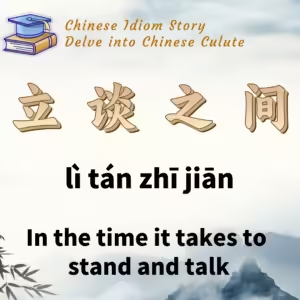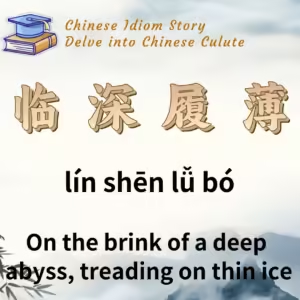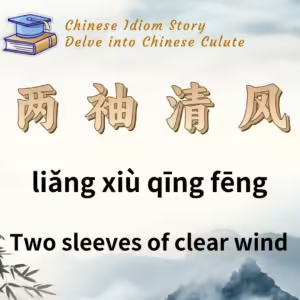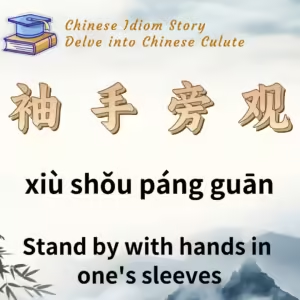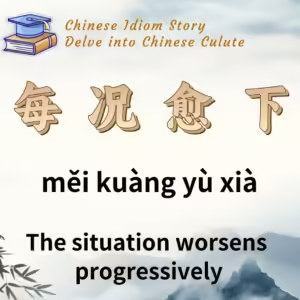
Chinese Idiom: 捉襟见肘 (Zhuo Jin Jian Zhou)
English Translation: Pulling the lapels exposes the elbows
pīn yīn: zhuō jīn jiàn zhǒu
Idiom Meaning: Originally, this idiom described someone whose clothes are so tattered that pulling on their lapels would expose their elbows due to the holes in their sleeves. It now figuratively refers to a situation where someone is overwhelmed, unable to cope, or struggling to manage due to a lack of resources or ability. It also conveys the sense of being stretched too thin, with too many responsibilities and too little means to handle them all.
Historical Source: Zhuangzi (《庄子》)
Idiom Story:
Zeng Shen (曾参) was a well-known figure from the late Spring and Autumn period, born in the state of Lu (modern-day Feixian, Shandong). Renowned for his virtue and moral integrity, he was a disciple of Confucius and famous for his daily self-reflection, as he would often say, “I examine myself thrice a day” (吾日三省吾身). His devotion to filial piety also earned him great respect from his neighbors.
One day, while Zeng Shen’s mother was quietly weaving at home, a neighbor rushed in, breathless and panicked, claiming that Zeng Shen had killed someone. Unfazed, his mother calmly responded, “My son would never kill anyone.” A little while later, another neighbor arrived with the same alarming news: “Zeng Shen has killed someone!” Again, Zeng Shen’s mother remained calm and disbelieving. However, when a third person brought the same dreadful news, she finally became anxious and rushed out to investigate.
Upon inquiry, she discovered that the accused murderer was another man with the same name as her son, Zeng Shen. Relieved, she returned home. This incident highlighted how highly Zeng Shen was regarded by those who knew him, as his mother had initially refused to believe that he could be capable of such a crime.
Despite his virtuous reputation, Zeng Shen experienced periods of extreme poverty. At one point, he was so impoverished that he had to wear a robe patched with tufts of hemp and so worn that his elbows would be exposed when he pulled on the front of his clothing. The idiom describes this moment as “正冠而缨绝,捉衿而肘见,纳屦而踵决,” meaning: “When he adjusted his hat, the string would snap; when he pulled at his lapels, his elbows would show; and when he put on his shoes, the soles would tear, revealing his heels.”
However, despite living in such dire conditions, Zeng Shen remained cheerful and optimistic. He continued his studies, reading and singing as if his hardship did not matter. His perseverance and positive attitude eventually earned him recognition as a great philosopher.
The idiom “捉襟见肘” came to symbolize both material poverty and the feeling of being overwhelmed by too many demands with insufficient resources to handle them.

